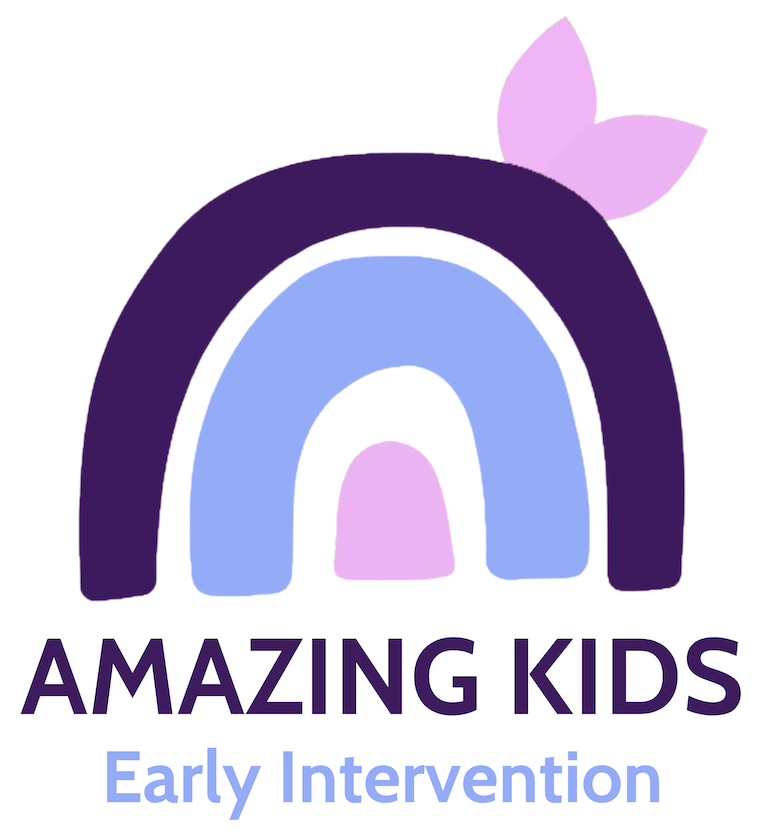Play is a fundamental aspect of childhood development, providing numerous opportunities for children to learn, explore, create, connect, and grow. For young children with Autism Spectrum Disorder (ASD), developing play skills can be particularly challenging, as they may face unique cognitive, sensory, and social obstacles. However, fostering effective play abilities in autistic children is essential, as it contributes to their overall development, including communication, social skills, emotional regulation, and problem-solving. Early intervention plays a critical role in cultivating play skills and promoting more favourable outcomes for young children with autism.
At Amazing Kids Melbourne, we recognise the importance of play skill development for young autistic children and are committed to addressing their play abilities through the proven Early Start Denver Model (ESDM) methodology. ESDM early intervention is specifically tailored for young children with ASD to promote play skills alongside other developmental areas. Our ESDM interventions focus on identifying each child’s strengths and interests, targeting play skills that cater to their unique needs and preferences, and guiding parents to support their child’s play development at home.
In this blog post, we will explore the significance of play skill development for young children with autism, examine how our experienced therapists at Amazing Kids Melbourne use ESDM principles to facilitate play abilities and share practical strategies for parents to encourage play development at home. By promoting play skills in young autistic children through early intervention, we enable them to embrace their creativity, foster meaningful connections, and build a solid foundation for overall growth and development.
The Significance of Play Skill Development for Autistic Children
Developing play skills is essential for several reasons, including:
1. Cognitive Development: Play encourages children to explore, experiment, and problem-solve, laying the groundwork for essential cognitive abilities, creativity, and decision-making.
2. Social Skills: Play interactions provide opportunities for children to practice social skills, such as communication, collaboration, and understanding of social cues.
3. Emotional Regulation: Play activities help children develop resilience, self-regulation, and empathy, promoting emotional well-being.
4. Motor Skills: Engaging in various types of play supports the development of both fine and gross motor skills.
ESDM Techniques for Developing Play Skills in Autistic Children
The Early Start Denver Model (ESDM) is an established early intervention approach designed for young children with ASD. Our specialised therapists at Amazing Kids Melbourne apply ESDM techniques to enhance play skills in autistic children, such as:
1. Structured Play: Our therapists create structured play environments, offering clear guidance and support for children to engage in play activities.
2. Scaffolding: Through scaffolding techniques, our therapists provide personalised support to help children progress in their play skills and gradually reduce support as their competence increases.
3. Incorporating Interests: By incorporating a child’s unique interests into play, we create more engaging and meaningful experiences that motivate children and facilitate learning.
4. Social Engagement: Our therapists focus on fostering social play interactions by modelling and encouraging turn-taking, imitation, and joint attention.
Developing Play Skills at Amazing Kids Melbourne
We take a comprehensive approach to nurturing play skills in young autistic children using the ESDM model. Our process includes:
1. In-depth Assessment: Our therapists conduct an extensive evaluation of each child’s current play skills, offering insight into areas of strength and areas requiring support.
2. Personalised Intervention Plans: Based on the assessment, we develop targeted intervention strategies that focus on enhancing play skills and other developmental areas.
3. Collaborative Approach: We involve parents and other relevant professionals in the development and implementation of intervention plans, facilitating a consistent, supportive environment.
4. Progress Monitoring and Adaptation: We continuously monitor each child’s progress and adapt our intervention strategies as needed, ensuring optimal outcomes.
Practical Tips for Parents to Support Play Development at Home
Parents play a significant role in nurturing their child’s play skills. Here are some strategies to facilitate play development at home:
1. Provide a Variety of Play Materials: Offer a diverse range of toys and materials that cater to different interests and developmental stages, such as blocks, puzzles, and dolls.
2. Create a Conducive Environment: Designate a clutter-free, child-friendly space that allows for exploration, creativity, and structured play.
3. Engage with Your Child: Be present and actively participate in play activities, modelling behaviours, offering guidance, and nurturing social interactions.
4. Encourage Different Types of Play: Support a balance of independent, parallel, and social play opportunities to foster overall play skill development.
Empowering Autistic Children Through Play Skill Development and ESDM Early Intervention
Through ESDM early intervention focused on play skill development, Amazing Kids Melbourne empowers young autistic children to embrace their creativity, foster meaningful connections and lay a strong foundation for overall growth. Our personalised, evidence-based strategies, combined with active parental involvement, provide a comprehensive environment for young autistic children to develop and thrive.
Together, we can support these incredible children in realising their potential, unlocking their innate creativity, and embracing life’s opportunities with enthusiasm. By fostering play skills in children with autism spectrum disorder, we allow them to fully experience the joys and discoveries of childhood, paving their way towards a promising future.
